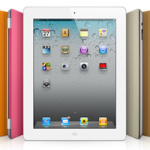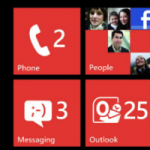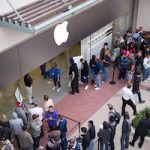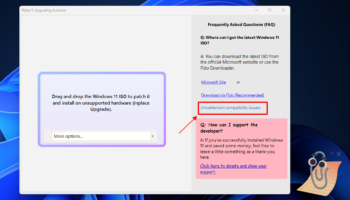Why is Microsoft buying Skype?

Steve Ballmer and Tony Bates explain, in a video-teleconference that took place late this morning. While this sounds cliché, the deal is about synergy around personal communications -- for work and home -- and the direct sales and potential advertising possibilities, particularly video.
Additionally, and this is something Ballmer only alludes to: Skype fits nicely into Microsoft's three-screen strategy around the TV, smartphone and PC.
iPad isn't hurting PC sales, claims NPD

Talk about raining on the barbecue -- NPD claims iPad isn't cannibalizing PC sales after all. It's all just urban legend. Tell that to AdMob, Gartner and Nielsen, which all see a different trend.
Perhaps, it's all about positioning, or interpretation. Nielsen found that 3 percent of U.S. tablet owners had given up desktop PCs, while 2 percent gave up laptops. AdMob puts the number at 28 percent for both categories combined. NPD's survey of U.S. iPad owners falls between AdMob and Nielsen -- 14 percent for people who owned iPad six months or more and 12 percent for holiday purchasers. Those seem like pretty big numbers to me for a device only one year on the market.
Microsoft snags Skype for a hefty $8.5B

Today, Microsoft announced a definitive agreement to buy Skype for $8.5 billion. The deal is simply stunning, for the potential brand reach Microsoft will gain, the boost to its real-time communications strategy and the potential for empowering Windows Phone-powered handsets with robust video communications.
The deal is also the kind of payday venture firms dream about. Auction site eBay acquired Skype in September 2005 for $2.6 billion, which at the time seemed like an odd fit -- a square box trying to fit a round hole. Investment group Silver Lake bought Skype in September 2009 for around $2 billion. Microsoft will deliver the big payday. Can you say return on investment?
Siege Hero for iOS, Angry Birds for the 1980's nostalgic

We don't typically review games here at Betanews, but a new game called Siege Hero that was released for iPhone, iPad, and iPod touch today sparked a pang of nostalgia in Tim Conneally, so we said he could write a quick review.
When we were children, my older brother and I were lucky enough to receive a game called Crossbows and Catapults as a gift. The premise of the game was simple: knock down your opponent's building block castle using rubber-band powered siege weaponry and red and blue "battle caroms" (essentially junior-sized plastic poker chips).
Microsoft will squeeze juicy new features from Mango on May 24

Today, I learned that I'm no VIP in Microsoft's eyes. I didn't receive one of the invites for the May 24 Windows Phone "Mango" event in New York City. Or perhaps PR people were being pragmatic, acknowledging that I'm on the wrong coast for the event. That triviality aside, yeah, the big Windows Phone next-version -- codename "Mango" -- sneak peak comes in 15 days. I guess the MIX 11 demo wasn't enough.
Invites to the event follow buzz stemming from the Windows Phone Dev Podcast Episode 15, featuring Brandon Watson, Microsoft's director of Developer Experience. Posted yesterday, hosts Ryan and Travis Lowdermilk discuss the new features, which include:
Internal emails show Google's tight control over Android

Google may have become heavy-handed in pressuring its Android device manufacturers to follow certain guidelines, recently released internal documents show. The documents have been released as part of a continuing lawsuit between it and Skyhook wireless over Google's insistence that Motorola use its own GPS location services.
Skyhook had originally won a contract to replace Google's location services with its own in all Motorola phones. The move apparently bothered the Mountain View, Calif.-based company, and it allegedly pressured Motorola into dropping the agreement. Skyhook then sued Google, alleging anti-competitive behavior.
BoxCryptor: Keep your DropBox files private from prying spies

Just how are your files encrypted when you back them up online? If you're lucky, your backup provider will perform the encryption and decryption of your files on your computer, so they're already encrypted prior to being uploaded. That means the backup company can't access those files, whatever happens.
But what if your backup company, like Dropbox, performs the encryption at the server end, and then suddenly changes its terms and conditions to allow it to hand over your data to the authorities if they demand it? You could change backup provider, but that might not be practical. Instead, you need a solution that encrypts the data for you, allowing you to upload a secure, encrypted version that only you can access. One such solution is BoxCryptor.
Ghostery hunts websites that haunt your privacy

Spend any amount of time online and there is a high chance that some of the websites you visit track information about you. Cookies, scripts and other techniques can be used to monitor how web users behave online and to build up profiles. This may well be information you would prefer not to share, and Ghostery is a browser add-on that can be used to detect, analyze and block any tracking of your online activities.
Ghostery is available for Internet Explorer, Firefox, Google Chrome and Safari, although the IE version is rather more limited than the version available for other browsers, and it can reveal a great deal of information about the web sites you visit. Turning the tables on the trackers, Ghostery enables you to find out exactly which companies are tracking you via the websites you visit and provides you with any opportunity to find out more about these companies.
The price you pay Apple to be cool

U.S. retail average selling prices for Macs and PCs reveal a startling, but ongoing, trend. Mac ASPs are higher and Windows PCs are lower than a year ago, according to NPD. The higher pricing also directly ties to brand, which affinity Apple has increased through its retail stores and success of products like iPod and iPhone. Today, Apple topped BrandZ's annual list of most valuable brands during 2010. "The brand increased in value by 84 percent to $153.3 billion," according to the report.
For Apple there is an integral relationship between brand and equity -- the value consumers are willing to pay to join the Apple Fan Club, which is more true for computers than any other product the company sells. The starting price for notebooks is $999 and $1,199 for desktops -- Apple unveiled new iMacs last week. Windows PCs are cheap, by comparison, selling for as little as $200. A surprising number of people are willing to pay more for Macs -- the Apple brand, really -- which shows up in average selling prices.
Get Comodo Internet Security Pro 2011 for free, save 50 bucks

Comodo Group has announced it's giving away a free one year-license of Comodo Internet Security Pro 2011, worth $49.95. Available for free download through Downloadcrew.com, Comodo Internet Security Pro 2011 includes both anti-malware and firewall software, giving users comprehensive protection against viruses, spyware and other threats.
The free one year license includes remote security and system support through Comodo's GeekBuddy service (free registration required), Comodo TrustConnect and a $500 guarantee (US residents only) for repair costs should Comodo be unable to restore your computer to a working state after infection.
Lenovo: next-generation video game console competitor?

The eighth generation of console video gaming is approaching. At the annual Electronic Entertainment Expo (E3) next month, Nintendo is expected to unveil the successor to the Wii, the company's now five-year old console that popularized motion-based controls.
In China, however, the generations of mainstream video game consoles have been disrupted by cultural regulations placed on the video game retailing in the late 90's. As a result, when Americans and Europeans were buying up consoles such as Xbox 360 and Wii in the tens of millions, they weren't even being sold in China.
When will PlayStation Network be back up?

Perhaps the question should be: "If I hold my breath waiting for Sony to answer and I die, can someone sue?" Because Sony's continued promises when PSN will be back up are like the kid who incessantly promises to clean his room and never does. Subscribers grow impatient, with the vast majority answering our poll are ready to switch to Xbox 360 and Xbox Live.
Late last month, Sony promised partial PSN restoration -- gaming, music and video services -- on May 4, a pledge repeated on May 1. It's now May 8, and PSN is still down. I checked just before posting.
16 must-see downloads you may have missed this week

Sadly we can't feature every new and updated application, but that doesn't mean that some of the apps we haven't covered aren't worth rounding up. There are a number of interesting applications that are worth some investigation and we've rounded up some of them put live during the last week.
doPDF 7.2.363 is a powerful free tool you can use to produce a PDF from just about any Windows application. Instead of sending it to your printer, simply print to the doPDF device. Creating a PDF is the ideal way of distributing a document for download, by email or for commercial printing. Just about any printer will take a PDF as your master.
News in the age of Twitter: lessons from Bin Laden and beyond

Everything we knew about breaking news has changed.
By this point, it's generally believed that CBS News Capitol Hill Producer Jill Jackson broke the stoy of Osama bin Laden's death with one tweet at 10:32pm EST. Whether Jill scooped her own network is a question for another time, but the point is this: One tweet, retweeted by me and thousands of others, came more than an hour before the President of the United States took the podium and confirmed what we'd all read.
Canadian lab unveils Paperphone: flat, flexible smartphone

Researchers from Queen's University in Ontario Canada this week unveiled a prototype of their "paperphone," a smartphone that has a flexible e-paper display instead of an LCD/TFT touchscreen.
The prototype consists of a 3.7" electrophoretic E Ink display rigged up with 2" bi-directional bend sensors so that the user interface can respond when the screen is bent. The machine was built with E Ink's Broadsheet AM300 prototyping kit, Gumstix processor and Arduino microcontroller. All of the sensor recognition takes place in a connected laptop running Cycling 74's Max 5 programming environment.
Most Commented Stories
© 1998-2025 BetaNews, Inc. All Rights Reserved. Privacy Policy - Cookie Policy.




